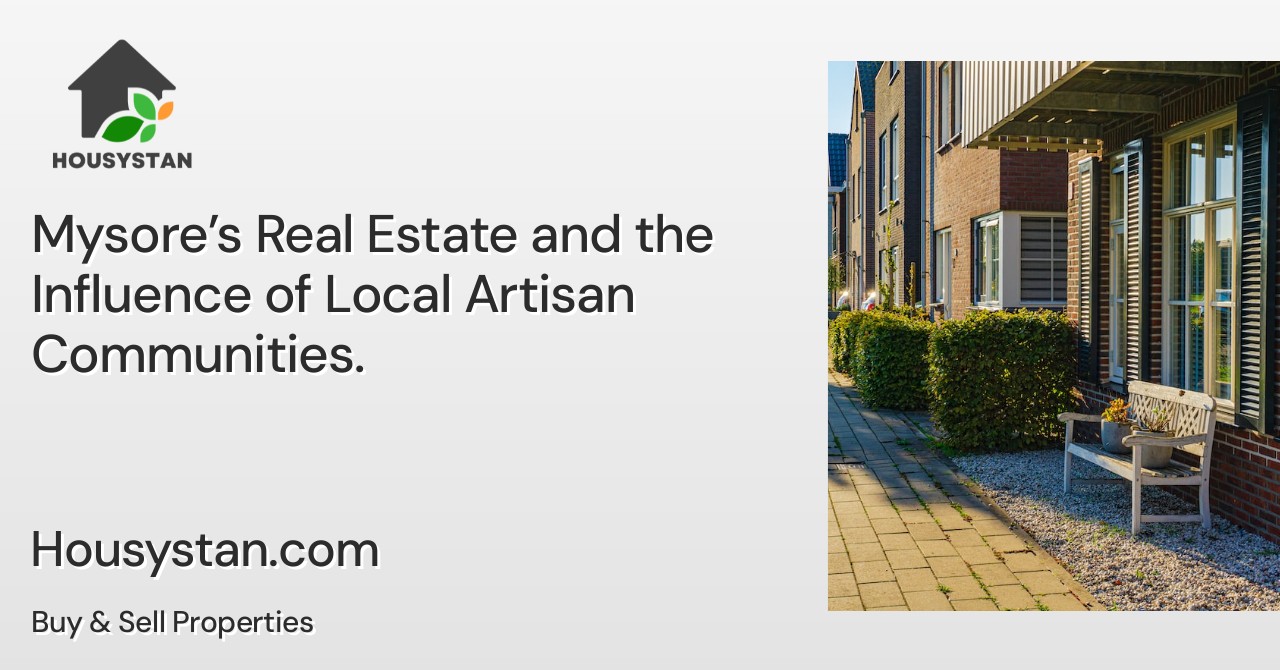Mysore’s Real Estate and the Influence of Local Artisan Communities
Read latest blogs and articles from Housystan

The Information mentioned here was last updated on:
29/1/2026Mysore, a vibrant city in Karnataka, is renowned not only for its majestic palaces and rich history but also for its unique real estate landscape, significantly influenced by local artisan communities. Over the past decade, Mysore’s real estate market has experienced remarkable growth, attracting investors, homebuyers, and developers from across India and beyond. This expansion is closely tied to the city’s cultural heritage and the dynamic presence of skilled artisans, whose traditions continue to shape urban development in meaningful ways.
Local artisan communities, including woodcarvers, silk weavers, and stone sculptors, have been an integral part of Mysore’s identity for generations. Their craftsmanship is visible in both residential and commercial projects, contributing to the city’s distinctive architectural style. Properties in Mysore often feature intricate wooden doors, handcrafted furniture, and traditional designs that reflect the area’s artistic legacy. This blend of heritage and modernity appeals to buyers seeking homes with character and cultural authenticity, setting Mysore apart from other urban centers in Karnataka.
The demand for properties that incorporate local artistry has led to a surge in developments in neighborhoods such as Lakshmipuram, Jayalakshmipuram, and Gokulam. These areas are particularly popular among professionals, families, and retirees who appreciate both the tranquil environment and the artistic touches present in new constructions. Developers are increasingly partnering with artisan guilds to incorporate bespoke elements into homes, further strengthening the bond between Mysore’s real estate sector and its creative communities.
- Verified Tenants/Buyers
- Unlimited Property Listing
- Zero subscription/charges fee
Moreover, Mysore’s strategic location near Bengaluru, excellent connectivity, and affordable property rates make it a preferred choice for investment in South India. The emphasis on preserving local arts within urban planning not only enhances property values but also supports sustainable growth and community development. As a result, Mysore stands out as a model for integrating cultural heritage into contemporary living, ensuring that the influence of local artisans remains central to the city’s ongoing transformation.